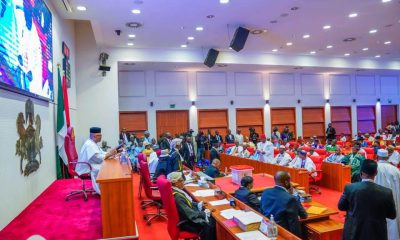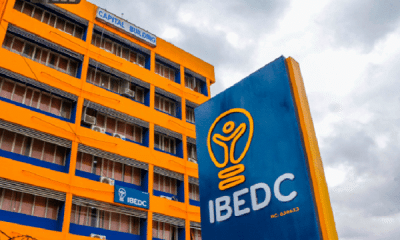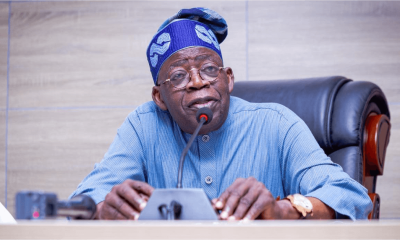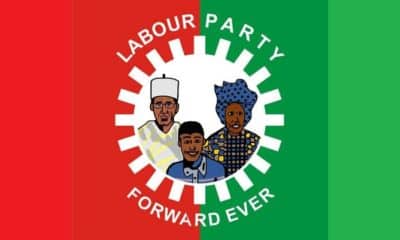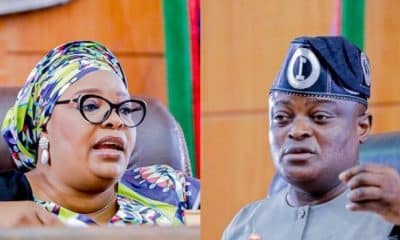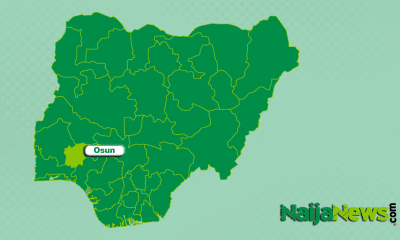Nigeria News
Local Govts Reject ₦62,000 Minimum Wage
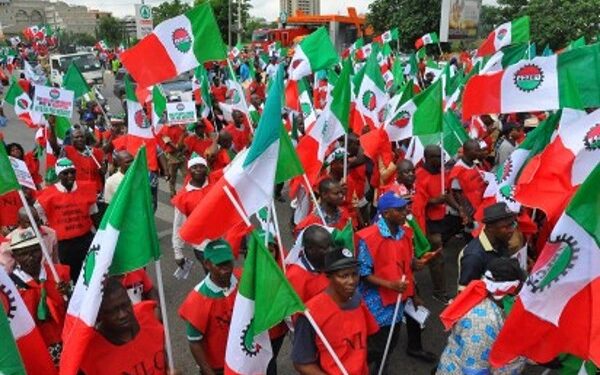
Amidst the ongoing controversy surrounding Nigeria’s proposed new minimum wage, the Chairmen of the 774 local government areas have voiced their inability to implement the ₦62,000 minimum wage, terming the ₦250,000 demanded by organized labour as unrealistic and unaffordable.
The disagreement comes in the wake of negotiations by the Tripartite Committee, which saw the Federal and State Governments, alongside the Organised Private Sector (OPS), settling on ₦62,000 as a feasible figure.
However, labour unions are holding firm on their demand for ₦250,000, stating that the lower figure does not meet the current economic realities faced by workers.
President Bola Ahmed Tinubu recently expressed his intention to forward the proposed amount to the National Assembly for legislative approval. Yet, labour leaders assert that there remains no consensus on the matter.
Adding to the complexities, the Supreme Court has deferred its decision on a related issue regarding the autonomy of local government councils in financial matters, which directly impacts their capacity to manage increased wage bills.
Aminu Muazu-Maifata, the chairman of the Association of Local Governments of Nigeria (ALGON), emphasized the financial limitations faced by local governments, noting that the allocations received from the Federation Account are insufficient to support such a wage increase.
In a related economic commentary, Bismarck Rewane, Managing Director of Financial Derivatives Company Limited, cautioned that an increase in the minimum wage without a proportional rise in productivity could lead to dire economic consequences.
Rewane highlighted that while the intention behind the wage increase is commendable, the economic framework supporting such changes needs to be robust to prevent further strain on the nation’s economy.
The debate continues as stakeholders from various sectors weigh in on the feasibility and implications of the proposed wage adjustments, with a keen eye on the upcoming legislative developments and the Supreme Court’s impending judgment.
Muazu-Maifata, who spoke on national television, said: “With the present allocation from the Federation Account, no local government council in Nigeria can afford to pay N62,000.”
He pointed out that local governments receive only slightly above 18 per cent of the total revenue accruing to the Federation Account, while the Federal Government receives more than 52 percent.
He stressed: “Presently, 90% of our inflow from the Federation Account goes into salaries and pensions. Without an upward review of the percentage of allocation to local government councils, it will be extremely difficult or even impossible for them to pay a N62,000 minimum wage.”
Muazu-Maifata, who is chairman of Lafia Local Government, Nasarawa State, appealed for understanding and assistance from higher authorities, noting that local governments would have to turn to governors and the Federal Government for financial augmentation, if a new minimum wage law is enacted.
He said: “We will have to run to our principals, the governors, and the Federal Government to augment whatever will be accrued to local government councils from the Federation Account.”
Muazu-Maifata said councils perform multiple functions beyond salary payments, adding that these obligations should be considered when determining an affordable and sustainable minimum wage.
The roles, he said, include the provision of basic health services, education, sanitation, security, rural roads, potable drinking water, and rural electrification.
Muazu-Maifata called for a collaborative resolution of the wage crisis among the Organised Labour, states and the Federal Government.
He said: “We are watching and hoping that an agreeable result will be reached. Local governments are prepared to comply with any legally enacted minimum wage, but require financial support to do so.”
On overstaffing and ghost workers, Muazu-Maifata cautioned against the potential fallout of mass layoffs.
He said: “Past administrations have overflown the workforce, leading to redundancy. Tackling this would affect many families negatively.”
He said: “The issue with minimum wages is that increasing them without a parallel rise in productivity due to infrastructural challenges like power shortages could effectively be tantamount to printing money,” Rewane explained.
He emphasised the urgency of addressing productivity alongside wage hikes to maintain economic stability.
Rewane highlighted the multifaceted nature of the negotiations, involving federal, state, and local governments, as well as the private and informal sectors.
He said “It’s not just a matter of agreeing on numbers; it’s about balancing wages against national productivity and welfare.”
He also alluded to the legal implications of non-compliance with minimum wage laws, saying that “failure to pay the minimum wage is punishable by hefty fines, which could exacerbate financial burdens for businesses.”
Rewane stressed: “Amidst the wage standoff, Nigeria also grapples with a downturn in crude oil production, declining by more than two percent. The decline is attributed to various factors, including divestment and operational challenges. This could impact national revenues and fiscal stability.”
He called for a collaborative approach to resolving the crisis to mitigate escalating economic risks.
Rewane stressed: “We need credible negotiations that consider the broader economic implications.”

